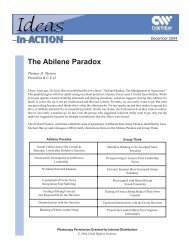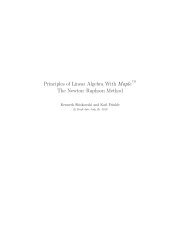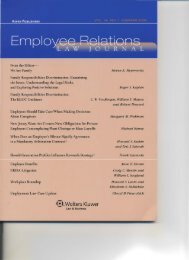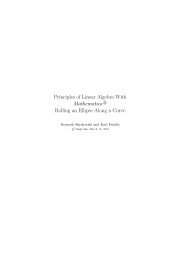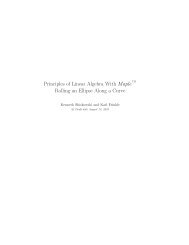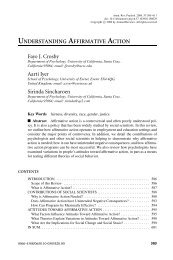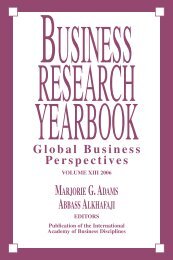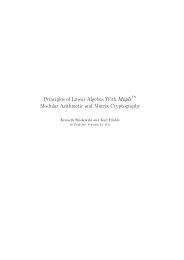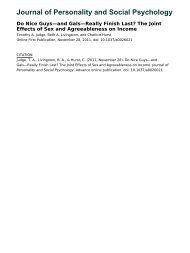www.SE.edu 1-800-435-1327 - Southeastern Oklahoma State ...
www.SE.edu 1-800-435-1327 - Southeastern Oklahoma State ...
www.SE.edu 1-800-435-1327 - Southeastern Oklahoma State ...
You also want an ePaper? Increase the reach of your titles
YUMPU automatically turns print PDFs into web optimized ePapers that Google loves.
150 <strong>Southeastern</strong> <strong>Oklahoma</strong> <strong>State</strong> University<br />
MASTER OF TECHNOLOGY<br />
(76)<br />
<strong>State</strong>ment of Objectives<br />
The goal of the Master of Technology Degree program is<br />
to prepare graduates for successful employment and advancement<br />
in science and technology fields which contribute to the<br />
economic well-being of southeastern <strong>Oklahoma</strong>. The program<br />
develops a knowledge base through three core courses and<br />
provides for an option of specialization. Candidates who would<br />
benefit from this program include:<br />
• Local baccalaureate graduates from the School of<br />
Science and Technology Arts and Sciences who<br />
wish to obtain a master’s degree.<br />
• Individuals employed in business/industry who wish<br />
to develop and broaden their technological and<br />
problem-solving abilities.<br />
• Teachers in science, technology, and mathematics<br />
who wish to prepare for a job in industry, develop<br />
new technology job skills, or advance within the field<br />
of science <strong>edu</strong>cation.<br />
• Individuals in the region who desire an advanced<br />
degree for self-satisfaction or position advancement.<br />
Upon completion of the program, students will be able<br />
to demonstrate the following outcomes:<br />
1. A broad, general knowledge about the foundations of<br />
science and technology, and in depth knowledge in a<br />
specialty area of science or technology.<br />
2. Knowledge and skill needed for functioning in a<br />
multicultural and technologically oriented society<br />
including but not limited to oral and written<br />
communication and interpersonal skills.<br />
3. Skills necessary for successful Professional<br />
collaboration<br />
4. Knowledge of information systems and technology,<br />
in terms of application and implementation.<br />
5. Effective problem solving skills in situations that<br />
require independent, creative thinking.<br />
6. Basic research skills for the design and execution<br />
or experiments, surveys, and investigations, as<br />
appropriate to one’s specialty area.<br />
7. Basic research skills in analyzing, interpreting, and<br />
reporting data, as appropriate to one’s specialty<br />
area.<br />
Program Assessment<br />
The program has an ongoing assessment proc<strong>edu</strong>re, involving<br />
student surveys and a Master of Technology Advisory<br />
Committee that allows continuous modification and improvement<br />
of program quality and effectiveness.<br />
Program Admission Requirements<br />
1. The applicant must be admitted to the Graduate<br />
School (A-307).<br />
2. The student should select a faculty member or,<br />
if required in a specific option, a committee, that<br />
consents to serving as the student’s advisor or<br />
advisory committee. The Coordinator for the<br />
Master’s of Technology program, can assist the<br />
student in finding an advisor or committee. The<br />
student must have an advisor or committee by the<br />
end of the first semester of graduate study. The<br />
advisor or committee members must have or be<br />
eligible for graduate faculty status, and apply for<br />
approval as regular graduate faculty status if he/she<br />
does not have it. This may include adjunct faculty<br />
members.<br />
3. The applicant may be required to complete some<br />
prerequisite courses depending on specialization<br />
area chosen and undergraduate degree.<br />
4. See option for other specific admission requirements<br />
if any.<br />
Thesis Option<br />
If the student elects a thesis option (see specific areas<br />
below), the student should:<br />
1. Discuss ideas for thesis work with his or her advisor.<br />
2. The student, prior to candidacy, must select two other<br />
faculty members, in the area of specialization or a<br />
related area, who along with the advisor consent<br />
to constituting the student’s committee. The faculty<br />
members must have or be eligible for graduate<br />
faculty status, and apply for approval as regular<br />
graduate faculty status if he/she does not have it.<br />
This may include adjunct faculty members.<br />
3. The student will prepare a written thesis proposal for<br />
review by the committee.<br />
4. The committee will meet with the student to provide<br />
advice about how to proceed with the thesis<br />
research.<br />
5. The student conducts research as part of the<br />
5000-level research credits earned for the degree.<br />
6. The student prepares a thesis according to guidelines<br />
available from the advisor or from the Program<br />
Coordinator.<br />
7. The committee reads the thesis draft and the final<br />
draft, and meets with the student to discuss any<br />
changes that may be necessary.<br />
8. The committee signs a form that approves the thesis.<br />
9. The student provides copies of the thesis, including<br />
copies of the form signed by the committee, to the<br />
Graduate Office, library, and advisor. The Graduate<br />
Office and advisor retain forms with original<br />
signatures.



